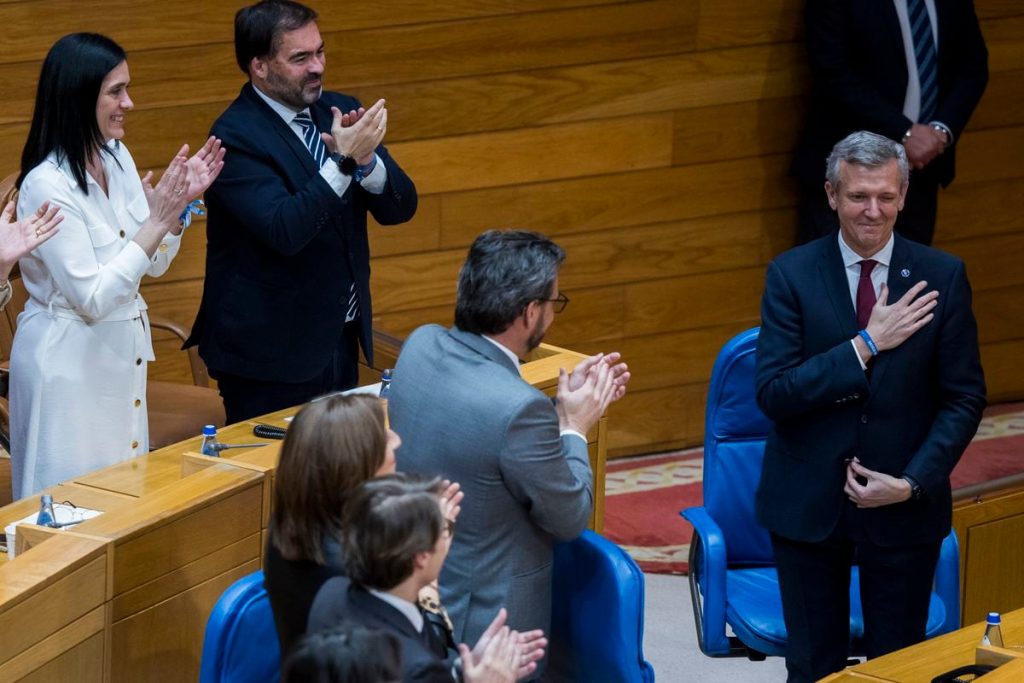Alfonso Rueda has been elected as the sixth president of the autonomous community of Galicia, succeeding Alberto Núñez Feijóo. Rueda received the support of 40 delegates from the Popular Party (PP), two more than the absolute majority required. The other three parties represented in the Galician Parliament, BNG, PSdeG-PSOE, and Democracia Ourensana (DO), did not support Rueda’s investiture. The session highlighted the continued divide between the PP and the opposition parties. The leader of BNG, Ana Pontón, criticized Rueda’s speech as “empty and demagogic,” accusing him of lacking a future vision and being controlled by the central government.
During the investiture session, Rueda criticized the central government, leading to further criticism from the socialist party, PSdeG-PSOE. They accused Rueda of using Galicia as a shield to attack others for the benefit of Feijóo’s strategy. The opposition parties, while acknowledging Rueda’s presidency, expressed concerns about his close ties to the central government and questioned his ability to govern independently. Despite attempts from Rueda to reach out to the opposition for potential agreements on industry and energy policies, no significant alliances were formed due to differing stances on key issues.
Rueda and the opposition parties have expressed willingness to collaborate but have not been able to reach any concrete agreements. The proposed partnerships on healthcare, housing, energy, and democratic regeneration have faced challenges due to conflicting priorities and approaches. Rueda announced plans to restructure the Xunta’s government, emphasizing a focus on science and language policy. He intends to reorganize departments to streamline project approvals and enhance the role of research and environmental protection.
Rueda’s inauguration will take place at the church and park of San Domingos de Bonaval, near the burial place of influential Galician figures such as Rosalía de Castro and Daniel Rodríguez Castelao. This historic setting holds symbolic significance for Galicia, emphasizing the region’s cultural heritage and identity. The event will mark the beginning of Rueda’s term as president, where he plans to introduce new initiatives to drive economic growth and social development. Despite initial tensions with the opposition, Rueda aims to foster collaboration and unity within the Galician political landscape.
Rueda’s presidency marks a significant shift in Galician politics, as he takes the helm of the regional government amid a challenging political climate. His commitment to reforming government structures and promoting innovation signals a new direction for Galicia. With the support of the PP delegates, Rueda aims to address key issues facing the region, such as healthcare, housing, and economic development. As he assumes office, Rueda faces the task of navigating complex political dynamics and delivering on his promises to the people of Galicia.


